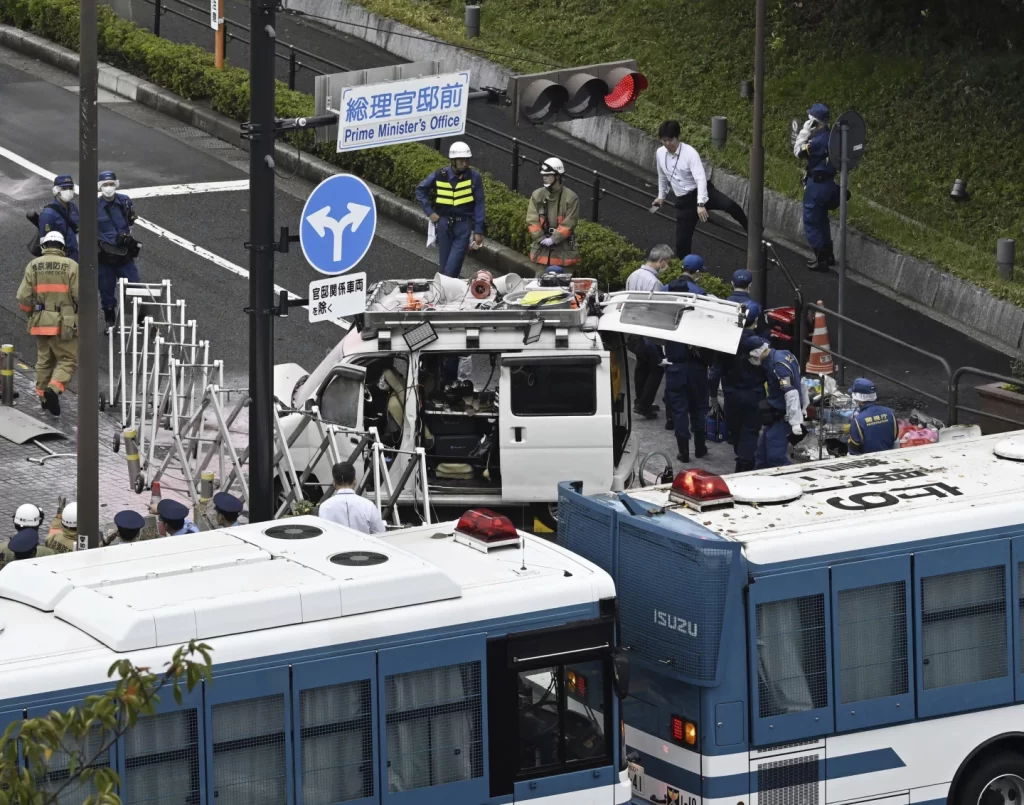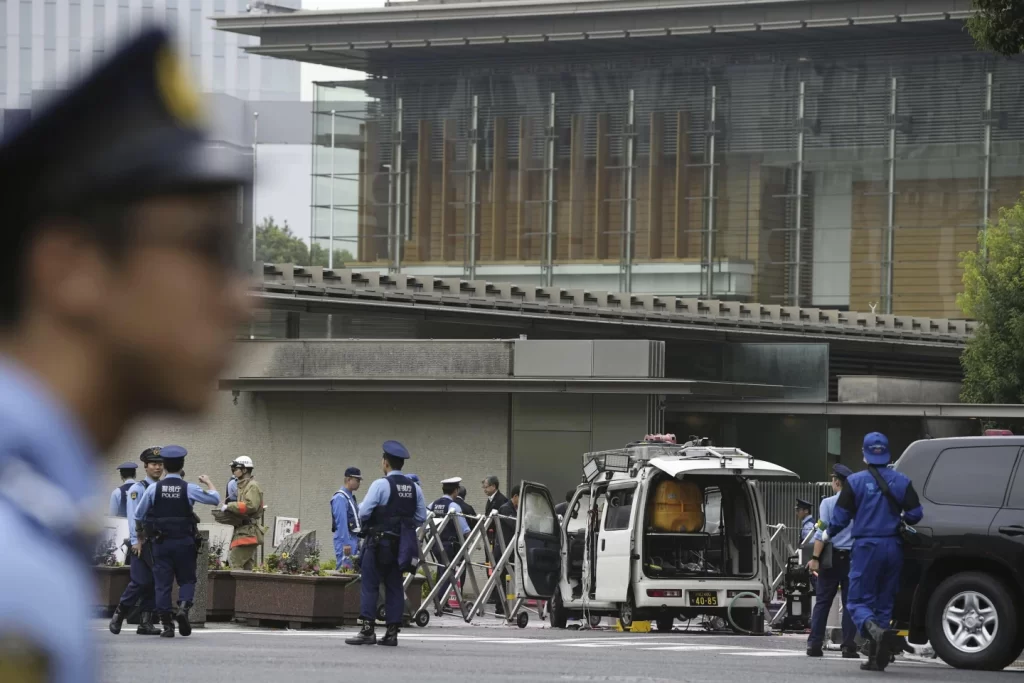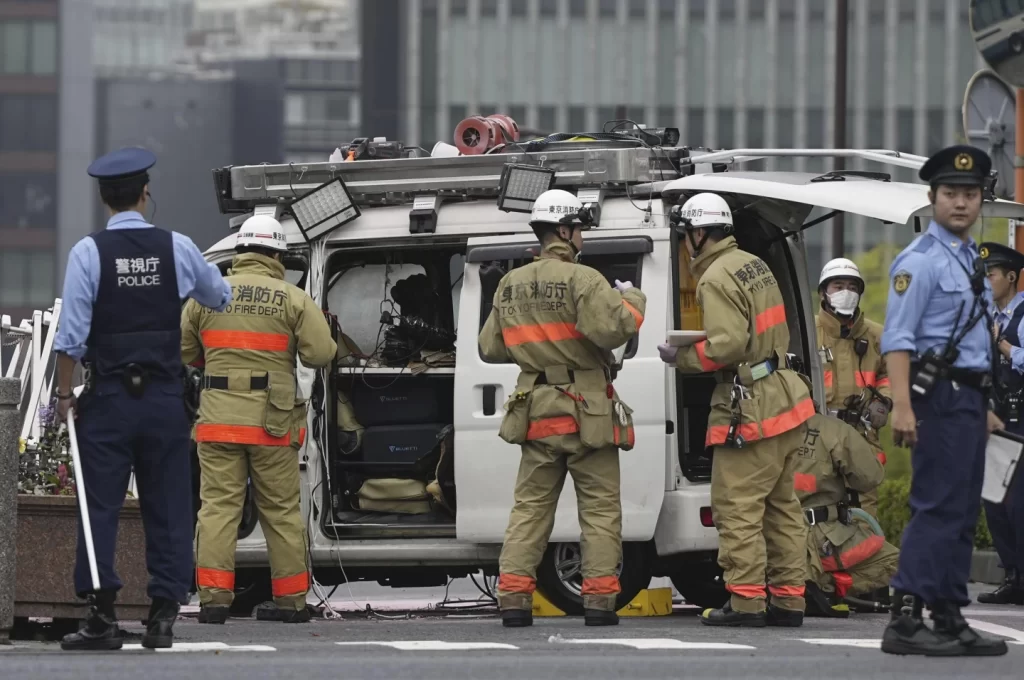In a brazen act of political violence, a man hurled several firebombs at the Tokyo headquarters of Japan’s ruling Liberal Democratic Party (LDP) on Saturday, before crashing his car into the fence surrounding the Prime Minister’s residence. The incident, which resulted in no reported injuries, has sent shockwaves through Japan’s political landscape.

Tokyo police swiftly apprehended the suspect, identified as 49-year-old Atsunobu Usuda, charging him initially with obstructing official duties. The motive behind Usuda’s actions remains unclear, but Japanese media reports suggest possible political aspirations and frustration with the financial barriers to entering politics in Japan.
This attack comes at a critical juncture for the LDP, as the party grapples with a widening money scandal involving dubious funding and suspected tax evasion. The controversy has led to a significant drop in public support, with recent polls indicating a steep decline in the party’s popularity.
The incident has reignited concerns about political violence in Japan, evoking memories of the 2022 assassination of former Prime Minister Shinzo Abe. That tragic event exposed controversial ties between some LDP politicians and the Unification Church, an issue that continues to haunt the party.

As Japan approaches the October 27 lower house parliamentary elections, the political atmosphere has become increasingly charged. Reports of candidates facing heckling, unusual in Japanese political culture, underscore the growing discontent among voters.
The LDP, which has dominated Japanese politics for decades, recently appointed Prime Minister Shigeru Ishiba as its new leader in an attempt to refresh its image. However, the party’s grip on power faces its most serious challenge in years, contending with a splintered opposition and widespread public dissatisfaction.
This firebomb attack serves as a stark reminder of the volatile political climate in Japan. It raises concerns about the safety of politicians and the potential for further violence as the election approaches. The incident also highlights deep-seated frustrations within Japanese society regarding political corruption and the accessibility of the political process.

As investigations into the attack continue, Japanese authorities will likely reassess security measures for political figures and party offices. The coming weeks will be crucial in determining whether this incident represents an isolated event or signals a more concerning trend of political violence in a nation known for its relatively peaceful democratic processes.
The LDP’s response to this attack and its handling of the ongoing scandals will be closely watched as the election draws near. The party’s ability to address public concerns and restore trust could significantly impact the outcome of the upcoming vote and shape the future of Japanese politics.



